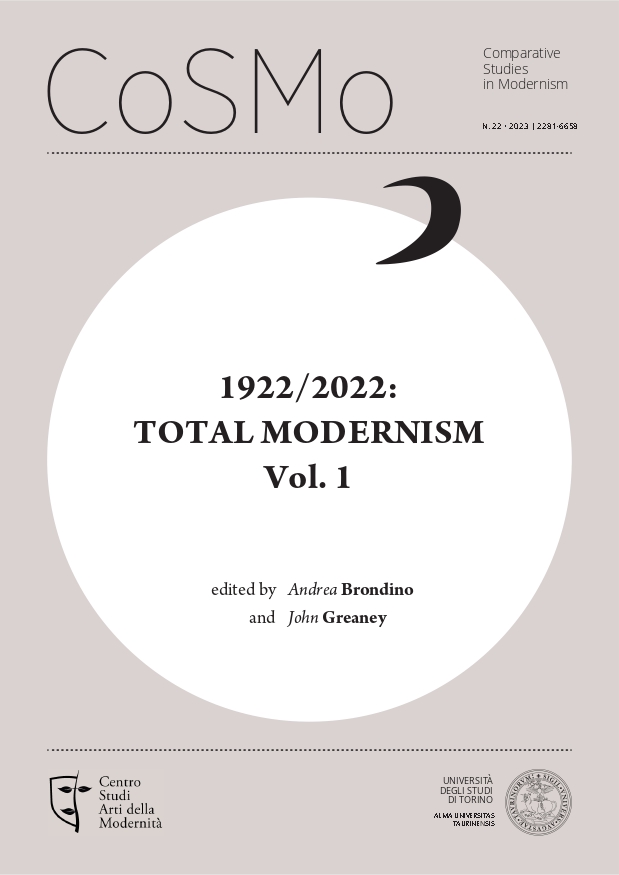T. S. Eliot and the Return of the Soldier
Re-gendering Nostos in “The Waste Land”
DOI:
https://doi.org/10.13135/2281-6658/7205Keywords:
T.S. Eliot, The Waste Land, Nostos, Return, Gender, The Great War, Shell Shock, AbortionAbstract
T. S. Eliot’s 1922 poem The Waste Land reimagines the theme of the soldier’s return in the wake of the Great War. In Part II of the poem (“A Game of Chess”), Eliot reveals the domestic crisis that the return of the demobilised soldier named Albert may cause. “A Game of Chess” is also concerned with the troubled homecoming of the unnamed, shell-shocked soldier who fought in “rats’ alley” by exposing the strain of psychological trauma on his married life. Drawing upon the literary trope of nostos (“homecoming”) that originates in Homer’s Odyssey, this article examines how Eliot’s treatment of the soldier’s return revisits the archetype of return from war in modern conditions. By examining the two passages constituting “A Game of Chess,” with a focus on relevant literary and cultural references, I investigate how the heroic, masculine narrative of nostos, homecoming in the classical epic tradition, is reframed in the domestic sphere associated with femininity.
Downloads
Downloads
Published
Issue
Section
License
Authors keep the copyrights for their work and give the journal the work’s first publication copyright, which is at the same time licensed under a Creative Commons License – Attribution, which in turn allows other parties to share the work with an acknowledgement of the work's authorship and initial publication in this journal.
Content Licence

You are free to copy, distribute and transmit the work, and to adapt the work. You must attribute the work in the manner specified by the author or licensor (but not in any way that suggests that they endorse you or your use of the work).
Metadata licence

CoSMo published articles metadata are dedicated to the public domain by waiving all publisher's rights to the work worldwide under copyright law, including all related and neighboring rights, to the extent allowed by law.
You can copy, modify, distribute and perform the work, even for commercial purposes, all without asking permission.






